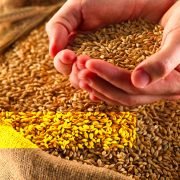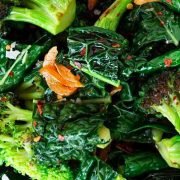For or Against the Grain?
There is so much in the media and the blogosphere about cutting out grains and living a life similar to that of the caveman through a Paleo diet. Although some of the claims of the Paleo community don’t stand up to good scientific scrutiny, there are many people who have seen incredible results including weight loss, reversal of Type 2 diabetes and autoimmune conditions, energy increases and more by adopting a Paleo diet.
However, we are not here to advocate giving up grains. If you can tolerate them (and lots of people can) then there is little reason to give them up. Our approach at Ritualize has long been to eat grains sparingly, putting more emphasis instead on other nutrient-dense foods via the 80/20 Food Pyramid (see below). It’s interesting to note that nutrition Australia has very recently released a new food pyramid which is moving towards the 80/20 food pyramid by putting vegetables at the bottom rather than grains (we still think they have some work to do J).
Let’s talk about what we at Ritualize believe when it comes to eating grains:
In traditional cultures, grains are soaked and some sprouted before baking with them – as are beans and lentils. Even our grandmothers soaked oats before they made porridge. However, modern lifestyles have demanded that everything be instant, so we now skip that process. The thinking behind the soaking of grains (as well as beans and lentils) is that it makes them easier to digest, and removes some substances that the Paleo community refer to as ‘anti-nutrients’. If you think about it, grains are seeds, so in nature, they don’t want to be digested, they want to be planted! The plants probably created these ‘anti-nutrients’ within them to make them difficult to digest, which would persuade creatures not to eat them. There are also certain compounds that stop the active enzyme activity of germination. So, if grains are soaked for a certain period of time, the sprouting process is started, which helps you digest them more readily – and makes them more nutrient dense.
In ‘western diets’, we consume far too much of 3 crops – wheat (in bread, cereals, pasta, etc., etc.), corn and soy (mostly through vegetable oils in processed foods). There are many ways to make better choices when it comes to grains and carbs in general. Eat a variety of natural, unprocessed grains, such as quinoa (strictly a seed), barley, couscous and oats. Wild rice, for instance, has almost twice the amount of fibre as brown rice. If you cook potatoes, cool them before eating. This increases levels of resistant starch, which bypasses the small intestines and goes straight through to the large intestines, where it feeds your good bacteria. There is evidence that if you cook rice with a tablespoon of coconut oil, then cool it right down, the resistant starch is increased and the calories are decreased by 50-60% – that’s a win on 2 fronts!
And what about bread? I think even the most loyal of Paleo followers must crave a piece of toast at some stage (ok, maybe not, but many of us do). There are many grain-free bread recipes out there, but if you are eating wheat bread, we highly recommend buying authentic sourdough bread made the artisan way. The gluten, which is very high is mainstream bread, is consumed away in the 12+ hour fermentation process, so much so that up to 90% of the gluten is gone by the time and bread is baked. Not only that, it’s delicious! Next time you’re buying a loaf, consider spending a little more and get a true artesian sourdough bread, which you will find them at most good deli and farmers markets.
The bottom line is that Government guidelines have traditionally promoted unprocessed whole grains for their fibre intake, but most of the grains that we eat are the highly processed, nutrient-depleted type. Instead of this, follow the Low HI (Human Interference) principles of our 80/20 food pyramid and get your fibre and resistant starch from vegetables and fruit, soaked beans and lentils and a moderate amount of unprocessed whole grains in different varieties – and prepare and cook in a way that optimises their health value.




